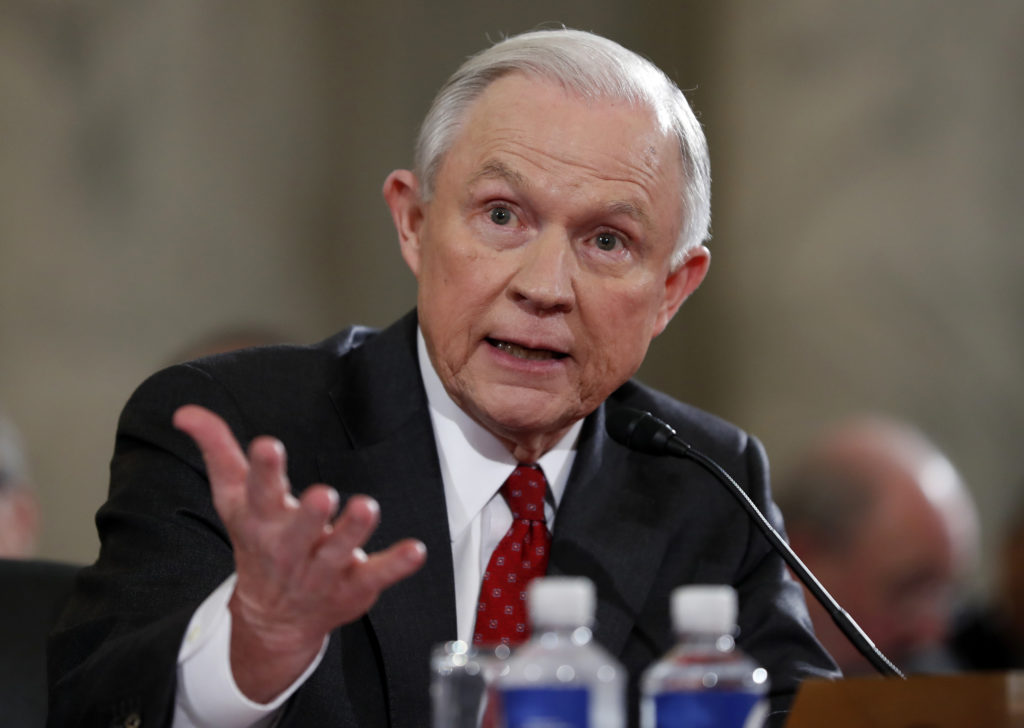Steve Flowers: Handicapping the ‘great show’ Senate Special Election

The decisive move by newly minted Governor, Kay Ivey, to declare a Special Election for the Jeff Sessions’ Senate Seat this year rather than next year changes the entire complexion of who will sit in that coveted seat. It also redefines the landscape of an ever changing and pivotal Alabama political scene. This next year will be an adventure as we elect a Senator and concurrently the 2018 Governor’s Race will begin its evolution. We have already seen the downfall of a sitting governor this year and by Sept. 26, we will see the election of a new junior U.S. Senator. There is an assumption that only a Republican can win statewide office in Alabama and winning the GOP primary is tantamount to election. The decision by Governor Ivey was the right decision. Most folks would assume that “forthwith” means this year rather than next year. It was also a wise political move by Ms. Ivey if she wants to run for a full term. Ivey’s calling for the Special Election for Sessions’ seat immediately, could be the death knell for Luther Strange. By December, he may go from being the newest and tallest member of the U.S. Senate to the shortest serving senator in Alabama history. His defeat could be very inglorious and humiliating. With the election being this year, it will be the only show in town. It will be a spectacle. Every politician who is in any office can run without risking his or her current posts. In other words, everyone has a free shot. Therefore, it will be a free-for-all. Everyone will run against poor Big Luther and the Bentley taint. They will use their campaign resources to give you the unmitigated details of how Luther got put in that seat by ole Bentley. You will be told so many times that Bentley and Luther got together in a backroom with Rebekah and brokered a deal to sell Luther the Senate seat in return for Luther not prosecuting Bentley and Rebekah that you will know the story by heart. Luther will be as tarnished and feathered as ole Bentley. In about two weeks, when the Washington PAC’s see the polling that reveals Luther is in trouble, his campaign resources will be less than he expected and he may not be able to defend against the onslaught of negative ads. The question becomes, who will be the early frontrunners? Roy Moore enters as the favorite. His evangelical base becomes crystallized in a large field. It will probably reserve him a place in the Sept. 26 run-off. Who will be the other candidate in the runoff? It may very well not be Luther Strange. The U.S. Senate is a select club. A cursory look around the chamber reveals very wealthy people or celebrities. Senate seats are bought by wealthy individuals in a good many cases. We have some people in Alabama who could very easily buy the Senate seat. The short period of time that exists to raise money for an Aug. 15 election even further enhances the advantage for someone who can self-finance and write a big check. The name on most lists is the “Yella Fella,” Jimmy Rane. He would sell. He is a natural salesman. Folks close to Yella Fella get the feeling that he does not want to go to Washington at this time in his life. However, he is adamant and determined that Luther Strange will not remain in the seat. Therefore, he may bankroll another candidate through a super PAC. Rumor has it that he will get behind Del Marsh. Marsh has his own money also. However, he needs more money because he is totally unknown to Alabama voters. I will keep you posted on the developments. I do not know how many of these folks will join the fray but this is how I will handicap the horses at this time. Jimmy Rane and Roy Moore are one and two. Other possibilities are Congressman Robert Aderholt, Congressman Bradley Byrne, Luther Strange, Secretary of State John Merrill, Congressman Mo Brooks, State Auditor Jim Ziegler, State Sen. Del Marsh, Trump Trumpeter Perry Hooper Jr., State Sen. Slade Blackwell, State Sen. Trip Pittman, ADECA Director Jim Byard, State Senator Arthur Orr, and State Rep. Ed Henry. It will be a great show. See you next week. ••• Steve Flowers is Alabama’s leading political columnist. His weekly column appears in over 60 Alabama newspapers. He served 16 years in the state Legislature. Steve may be reached at www.steveflowers.us.
Mayors grapple with grant threat after meeting with Jeff Sessions

Mayors from several U.S. cities threatened with the loss of federal grants emerged from a meeting with the attorney general Tuesday saying they remain confused about how to prove their police aren’t prohibited from cooperating with immigration authorities — a requirement for the money. The Justice Department has warned some jurisdictions that they could lose some law enforcement grant money if they don’t prove their local police and sheriffs are able to share information with federal immigration authorities about the citizenship status of people in their custody. Attorney General Jeff Sessions has labeled cities that bar such information-sharing as “sanctuary cities.” “We want all jurisdictions to enthusiastically support the laws of the United States that require the removal of criminal aliens, as many jurisdictions already do,” Sessions said in a statement released after the meeting with representatives of the U.S. Conference of Mayors. But the officials who met with Sessions said practical questions remain about how to follow the rules. For example, does that mean a sheriff’s department must tell Immigration and Customs Enforcement about an inmate’s incarceration by phone? Or will an inmate’s fingerprint information, taken by the jail and then shared with the FBI and ICE, be enough? And how long can a local jail hold someone for immigration authorities without violating their rights? “We got more clarity than we’ve ever received, but we also have other thorny issues to sort through,” said Jorge Elorza, the mayor of Providence, Rhode Island, after the hour-long meeting. It was the first time the delegation of mayors met with Sessions since the department sent nine jurisdictions letters on Friday warning they would lose key grant money unless they document cooperation with immigration authorities. The jurisdictions, which include the state of California and major cities like Chicago, New York and Philadelphia, were places the Justice Department’s inspector general previously identified as having barriers to information-sharing among local police and immigration officials. Some disputed they met the “sanctuary city” title. New Orleans Mayor Mitch Landrieu, whose city received one of the letters, said he provided Sessions with proof of compliance during Tuesday’s meeting but remained stunned the city received a warning in the first place, as it drafted its policies in consultation with federal immigration and Homeland Security officials. The delegation also included mayors from Columbia, South Carolina; Gary, Indiana; and Austin, Texas. The meeting touched on a number of other concerns related to the Trump administration’s immigration policies they said remain confusing. On a number of immigration issues, “we hear very different messages from (Homeland Security), DOJ and also the White House,” Elorza said. “Just give us clarity and please have one, clear policy so we can know where we stand.” Republished with permission of The Associated Press.


